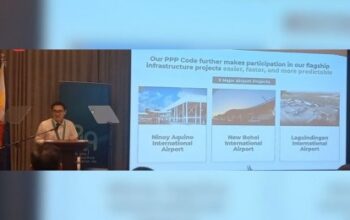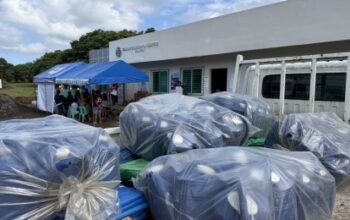Department of Trade and Industry (DTI) Secretary Ramon M. Lopez has cited the legislative contributions of House Ways and Means Committee Chair, Albay Rep. Joey Sarte Salceda to the country’s economic recovery as principal author and sponsor of the Corporate Recovery and Tax Incentives for Enterprises (CREATE) Act.
In a letter to Salceda dated June 8, Lopez said the passage of RA 11536 or the CREATE Act, has “laid the groundwork for a new incentive regime and the development of the Strategic Investment Promotion Plan (SIPP) for all investment promotion agencies.”
“DTI and the rest of the Investments Promotion Agencies (IPAs), through the Philippine Investment Promotion Plan (PIPP) membership are grateful for this strategic promotion tool as we pursue economic recovery efforts,” Lopez’s said.
He also invited Salceda to an Appreciation Ceremony scheduled on June 27, 2022 at 2:00 PM at the Legazpi 1 Ballroom, 2nd Floor of the Makati Diamond Residences, in Makati City.
Signed by President Duterte in March 2021, CREATE Act is considered as the largest fiscal stimulus for businesses in the country’s recent history by reforming the corporate income tax and incentives systems.
RA 11534 cuts corporate income tax rate to 25 percent from the current 30 percent, retroactive from July 1, 2020. Most recently, Salceda, has assured that agriculture, being a leading sector needed to push the country’s economic recovery, will receive “generous” tax incentives under the CREATE Act.
He said he is “closely working with the Finance, Trade and Industry, and Agriculture Secretaries” to include several agricultural sub-sectors in the SIPP, the list of industries eligible for tax incentives under CREATE.
Salceda explained that “by giving key agricultural sectors tax incentives, we can lower production costs and encourage farm modernization, that will help lower consumer prices and boost domestic food supply.”
“It’s a positive approach to encouraging domestic food production without choking our own food supply by preventing imports. Besides, preventing importation through trade barriers is unsustainable. There is no substitute to direct and positive support to the agriculture sector,” he stressed.
Salceda has also urged incoming DTI Secretary Alfredo Pascual to “complete the work undertaken by the Duterte administration in crafting industrial policy” by crafting a comprehensive SIPP, or the list of industries eligible for tax incentives.
At Salceda’s initiative, the DTI adopted a three-stage approach to crafting the SIPP — interim, transitional, and comprehensive SIPP.
The current SIPP in effect is meant to be a transitional SIPP, he explained.
The economist-lawmaker said he “anticipates a more holistic approach in comprehensive SIPP planning, with details on what incentives can be used to spur growth at certain stages of incentivized industries.”
“In other words, the comprehensive SIPP will be our country’s top instrument of industrial planning,” he added.










